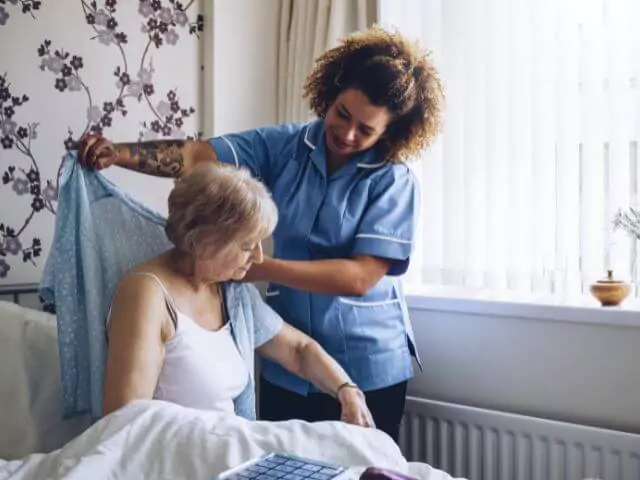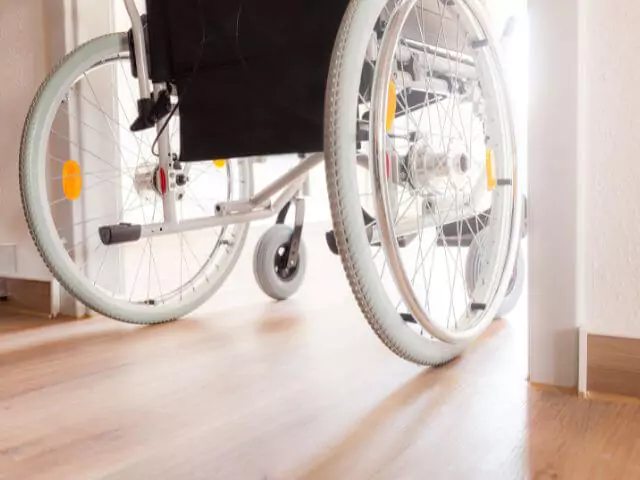Health and social care workers provide support and help to people of all ages with a range of difficulties and disabilities that impair their daily living. Whether this is going into people’s homes to provide personal care (dressing and washing), supporting young people with mental health or aiding the rehabilitation of those recovering from illness, there are an array of avenues that social care workers can take during their careers.
There are 1.48 million people currently working in the health and social care sector, but according to Health Careers NHS, at least another half a million people need to join the sector by 2030 to meet increasing demand. Would you like to be one of the 0.5 million but you’re not sure what career routes are available? Or are you already working in the sector but want a role change? If so then read on…

If you want to provide direct care:
Care worker/Personal assistant
There is often crossover between these two roles as they both involve direct patient care. Carers provide specialised, personal support and care for people with health issues and physical or social disabilities that are unable to undertake day-to-day activities without assistance. Care workers are people persons and are comfortable working in people’s homes and supporting them with essential aspects of everyday life, such as personal care (bathing, dressing) and household tasks, e.g. cleaning and cooking.
Personal assistants are employed directly by individuals to assist them in their own homes, or out in the community, to enable them to live as independently as possible. They may help individuals with limited mobility get out the house for work or appointments, monitor their client’s health and medication, organise physical and social activities for their client or help them by doing their shopping. Because of this, they provide a vital source of human contact, which is essential to combatting loneliness and isolation amongst the elderly and disabled.

Advocacy worker
Advocacy workers work directly with patients to develop individualised care plans so that patients have control over the care that they receive. Many disabled and vulnerable people lack the confidence, or communication skills, to voice their concerns about their care, which is why having someone to support them through the process and to champion their ideas is important to ensure that everyone receives the care that they want and that is in their best interest.
If you want a social care support role:
Welfare rights officer
The number of different services and help available to people can often be confusing. This is why there are welfare rights officers on hand to explain the different benefits available and legislation in place to support and enhance people’s welfare. The role includes having an excellent knowledge of welfare laws and reforms, liaising with benefits agencies and supporting people throughout their applications to various welfare support organisations. The main aim of the role is to safeguard people’s welfare rights, whether that is through advice and education, or by representing people when it comes to formal discussions about their rights.

Volunteer coordinator
Volunteers are essential to the running of many social care charities, such as The Prince’s Trust and Scope UK, but they wouldn’t know how to be of help without direction. This is where a volunteer coordinator comes in. They are motivators and organisers. They recruit and manage volunteers for local authorities and charities on both a regional and national scale, and are often responsible for a specific team. Coordinators ensure that volunteers are suited to their position and hold the correct skills for the role, and they champion their volunteers by arranging celebration events to recognise the important work volunteers do.
If you want a social care professional role that requires higher education awards or specialist training:
Occupational therapist
Occupational therapists have specialist knowledge of how to improve the lives of those with issues such as physical impairment and poor mental health, and understand how to build effective, personal care plans. They work closely with care workers to ensure that patients receive the care that suits their individual needs. This includes recommending adaptations to people’s homes, such as fitting a stairlift or wheelchair ramp for those with limited mobility, and referring patients to other forms of therapy if needed. Because of this, occupational therapists have to have an excellent knowledge of the health and social care services available in their local area, as well as a good working relationship with these, to offer the best care possible.
You’ll need specific training at either degree or postgraduate level to practise as an occupational therapist, as well as being registered with the Health & Care Professions Council (HCPC).

Social worker
This role is all about improving and safeguarding the well-being of vulnerable and socially isolated individuals, including children, people with disabilities and chronic illnesses and ex-offenders. Social workers implement plans for patient rehabilitation, with the goal in mind to empower individuals to live independently or to reinstate them into their local community. Due to the nature of the role and the range of people that need help, social workers can practise in many different settings including schools, hospitals, residential care and prisons.
You’ll need an honours or postgraduate degree in social work to practise as a social worker.
Counsellor
Counselling is a talking therapy that allows people to explore and work through their emotional difficulties. Counsellors are good listeners and establish relationships with their patients that are founded on trust and confidentiality. They have strong knowledge of mental health practices and an understanding of techniques to ease mental health disorders, such as anxiety and OCD, and use this knowledge to work with and treat patients. Counsellors can practise in several environments, such as GP surgeries and schools, and they usually have a permanent office that they are based in.
You need specialised training to practise as a counsellor and being a member of a counselling professional body is advantageous.
If you are interested in a career in any aspect of health and social care check out our courses:


















